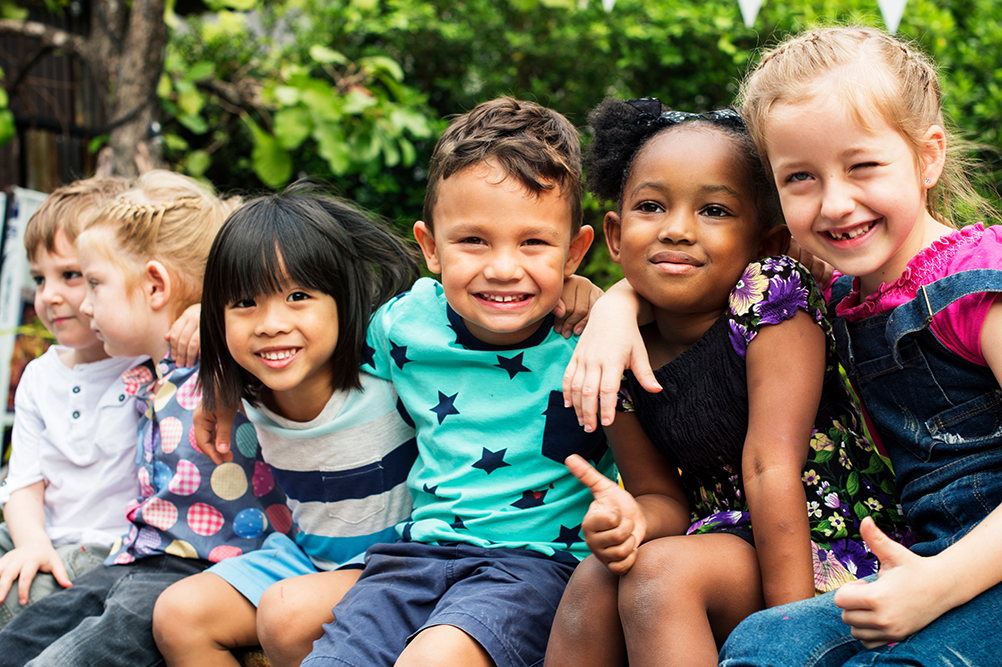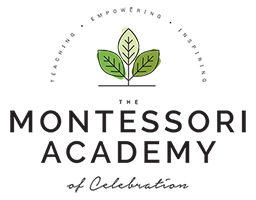
Early Education

Children’s House / Half and Full-day
2 1/2 To 6-Year-Old Children, PreSchool through Kindergarten
Do you hope to ignite your young child’s love of learning and lay the foundation for a fulfilling future? The Montessori approach to early childhood education will begin that process in a joyful, secure, and loving environment in which your young child will thrive.
The Early Childhood level, for children ages 2 ½ – 6, encourages preschoolers to explore and discover, to collaborate with classmates, and to take ownership of their education. The Montessori Method encourages self-directed learning that promotes self-confidence, independent thought and action, and critical thinking, while fostering social-emotional and intellectual growth.
–American Montessori Society
Morning Program
8:15 – 11:45, Monday – Friday
This program includes community sharing time to develop social engagement, individual work time, and outside gardening and playtime. Your child’s work cycle involves selecting an activity, performing it for as long as it remains interesting, cleaning up the activity and returning it to the shelf, and making another work choice. This cycle respects individual variations in the learning process and facilitates the development of coordination, concentration, independence, and a sense of order.
Full Day Program with Nap
8:15 – 3:15, Monday – Friday
For children who need time to rest in the afternoon, this option incorporates the morning program outlined above followed by lunch, storytime and nap time.
Full Day Program
8:15 – 3:15, Monday – Friday
The morning program is followed by lunch, playground time, and an afternoon session during which the children become involved in extended activities, especially in Geography and Science.
Kindergarteners are introduced to progressively more advanced Montessori materials and sophisticated, fascinating lessons. Their previous learning from working with concrete Montessori materials begins to become permanent knowledge, preparing them for the Elementary classroom.
The Early Childhood classroom offers your child 5 areas of study: Practical Life, Sensorial, Math, Language, and Cultural Studies. What are the lessons in these areas?
Practical Life
Children learn daily-life skills, such as how to get dressed, prepare snacks, set the table, and care for plants and animals. They also learn appropriate social interactions, such as saying please and thank-you, being kind and helpful, listening without interrupting, and resolving conflicts peacefully. In addition to teaching specific skills, Practical Life activities promote independence, and fine- and gross-motor coordination.
Sensorial
Children refine skills in perceiving the world through their different senses, and learn how to describe and name their experiences—for example, rough and smooth, perceived through touch. Sensorial learning helps children classify their surroundings and create order. It lays the foundation for learning by developing the ability to classify, sort, and discriminate—skills necessary in math, geometry, and language.
Math
Through hands-on activities, children learn to identify numerals and match them to their quantity, understand place-value and the base-10 system, and practice addition, subtraction, multiplication, and division. They also explore patterns in the numbering system. With an exploratory approach, children do more than just memorize math facts; they gain a firm understanding of the meaning behind them.
Language
Activities throughout the Early Childhood classroom teach language, help children acquire vocabulary, and develop skills needed for writing and reading. The ability to write, a precursor to reading, is taught first. Using hands-on materials, children learn letter sounds, how to combine sounds to make words, how to build sentences, and how to use a pencil. Once these skills are acquired, children spontaneously learn to read.
Cultural Studies
A wide range of subjects, including history, geography, science, art, and music, are integrated in lessons in the cultural area of the curriculum. Children learn about their own community and the world around them. Discovering similarities and differences among people and places helps them develop an understanding and appreciation of the diversity of our world, and a respect for all living things.
